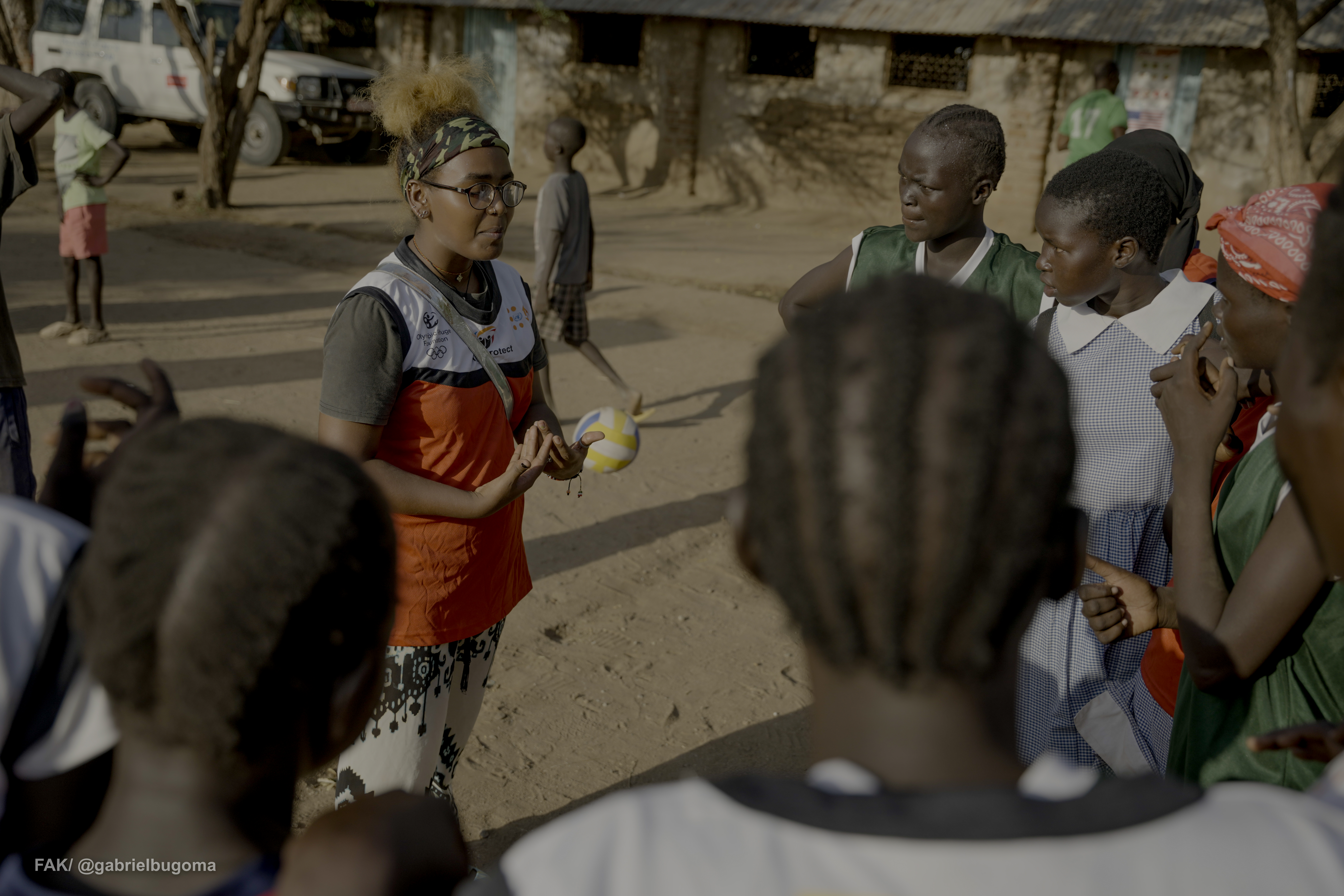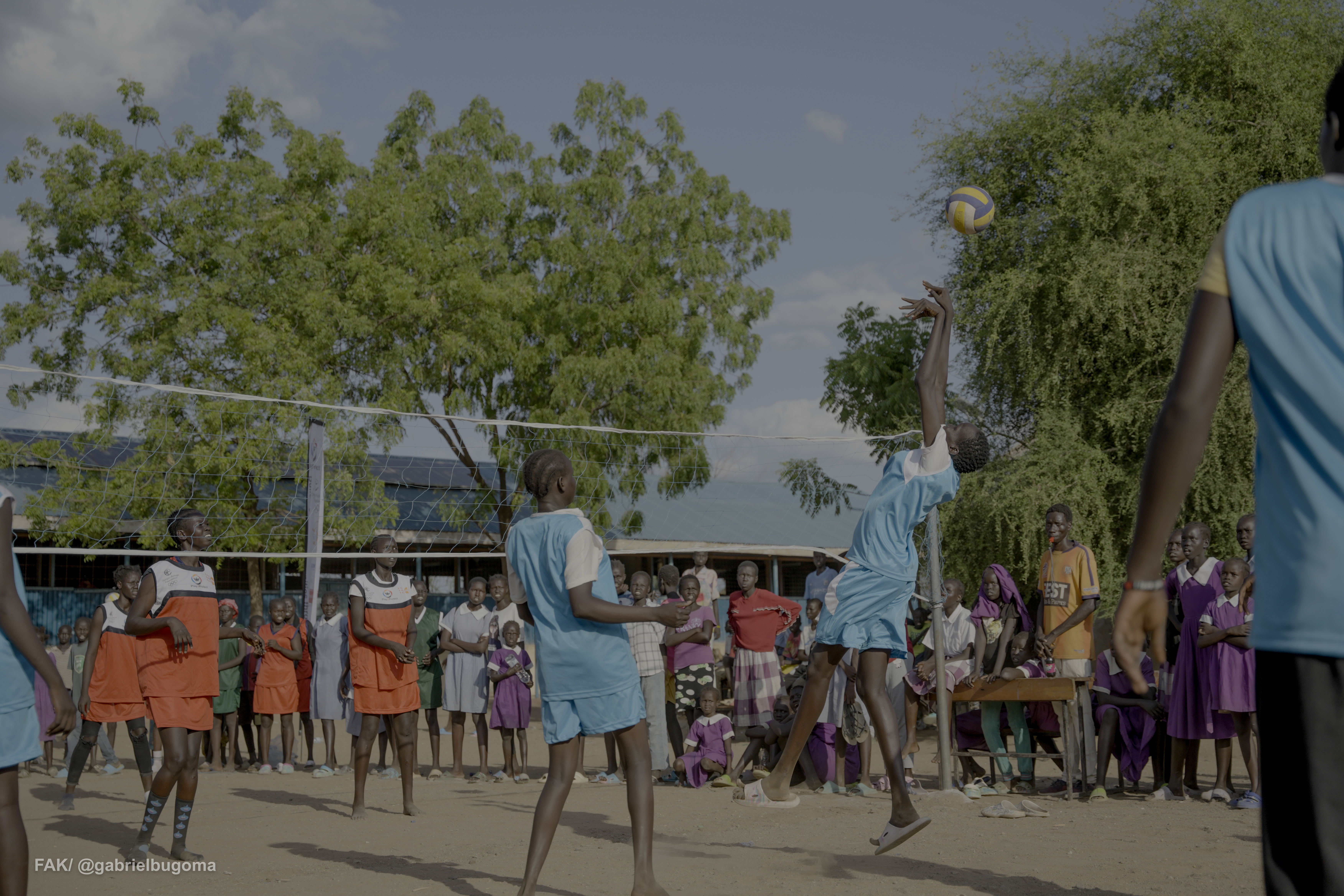Twenty-year-old Nelly Adee has lived in the Kakuma refugee camp her whole life. “My parents fled South Sudan because of conflict, and I was born a refugee here in Northern Kenya,” she says. Having spent her adolescent years in the camp, she knows all too well the unique challenges faced by young girls and women in her community.
“Access to sanitary pads and other personal hygiene supplies like soap is a big issue for us. The burden of taking care of the family also mostly falls on women, and for those with large families, getting enough food for their children can be challenging,” she says.
After completing high school, Nelly was home with no prospects for a job or further education, until a neighbor told her about a women’s center nearby, where she could learn income-generating skills such as baking and knitting. It is at this center that she learned about Play2Protect, a project which uses sports to engage young people in refugee and host communities in ending gender-based violence and promoting gender equality.
Nelly plays volleyball and football. and also volunteers to organize community talks on gender-based violence “When I started, I had little experience with gender-based violence, but as I continued to organize community talks with other women and girls on the issue, I gained a lot of knowledge that is also going to help me in my personal life,” she says.
Unlike Nelly who has lived in Kakuma her entire life, 21-year-old Shewid Teferi arrived at the camp just six months ago, after fleeing conflict in Ethiopia’s northernmost region of Tigray. “Being a refugee is difficult, especially when you are alone with no money and away from your family,” she says. Through the Play2Protect project, Shewid has found a purpose in mentoring adolescent girls on sensitive issues such as their sexual and reproductive health, self-esteem, and knowledge of their rights.

and knowledge of their rights.
The Play2Protect project aims to raise awareness and engage the refugee and host communities in the prevention of gender-based violence among adolescent girls, young women, and boys. With funding support from the Olympic Refuge Foundation (ORF), UNFPA has partnered with the Kenya Red Cross Society, International Rescue Committee, FilmAid Kenya and UNHCR to roll out the project in Kakuma Refugee Camp and Kalobeyei Integrated Settlement.
By leveraging inter-school sports tournaments, interactive theatre, community dialogues, and radio broadcasts, the project has been able to reach more than 250,000 young people with information on the prevention and response to gender-based violence and the importance of promoting gender equality and inclusion in sports and society.

on ending gender-based violence and promoting gender equality.
This year's World Refugee Day was marked in Kakuma Refugee Camp under the theme "Hope away from home", highlighting the need to give refugees the opportunity to study, work and live healthy lives wherever they find safety. The day was marked with a volleyball tournament organized by Play2Protect partners, where refugees and members of the host community came together to reflect on ways of fostering a sense of safety and belonging that gives hope to refugees uprooted from their homes.
“When we play side by side with the host community, we feel accepted and also we know that the sports activity is helping all of us with our physical and mental well-being,” says Nelly. With global forced displacements at a record level due to conflict and insecurity, initiatives like Play2Protect are bringing hope to refugees like Shewid as they work to restart their lives and contribute to their new communities, far away from home.
“I had a good life back at home where I attended a private school, and my family took care of all my financial needs. With my new status as a refugee, I have had to learn how to fend for myself, and I want to help other refugee girls to become strong through sports and mentorship,” says Shewid.


